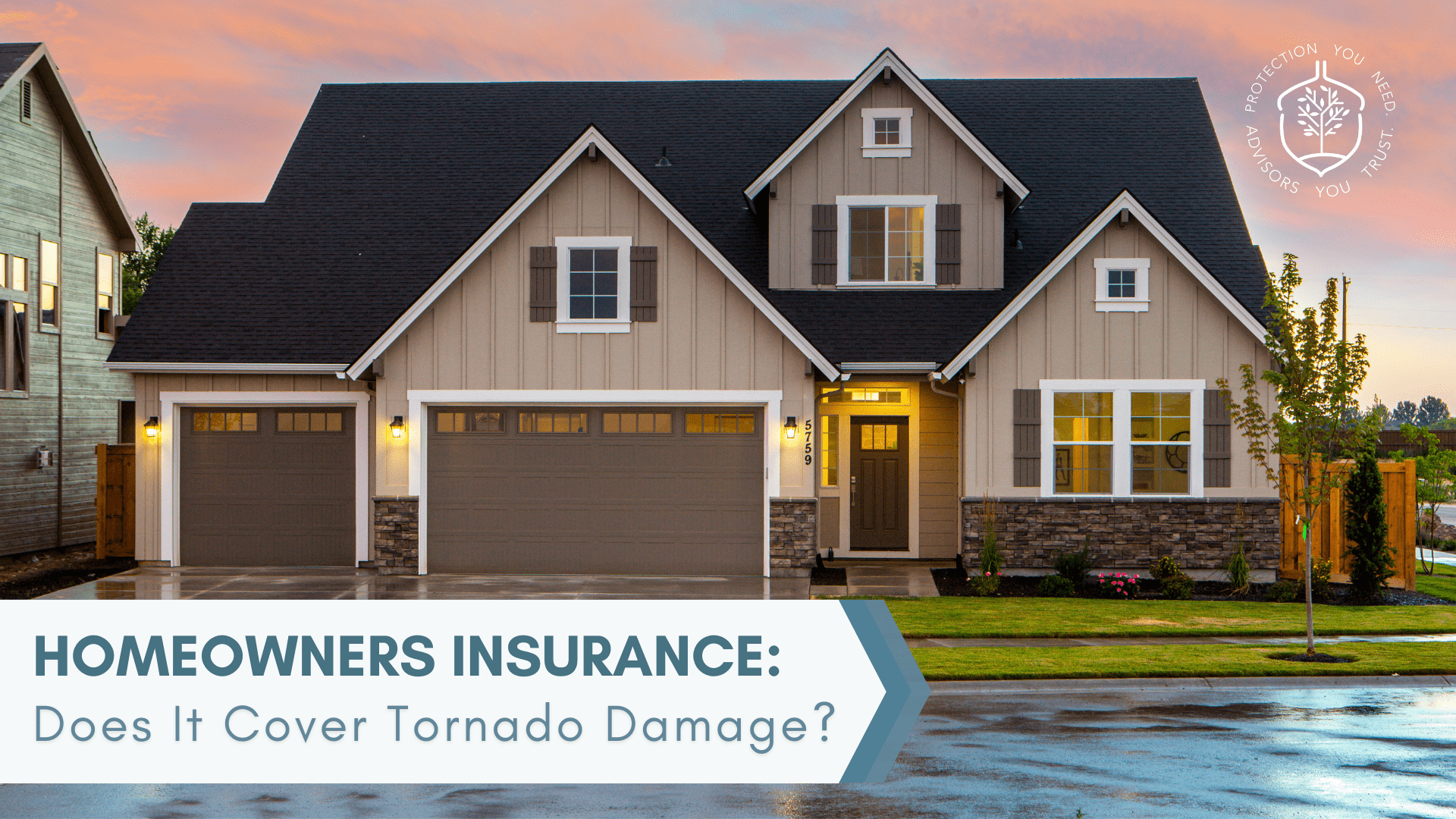It’s no secret that Louisiana experiences its fair share of tornadoes, and as a homeowner living in the state, you probably have questions about how your homeowner’s insurance policy covers damage inflicted by these storms.
Louisiana is located within the Dixie Alley, an area in the southeastern part of the United States that is prone to strong and violent tornadoes.
The state itself has experienced an annual average of 55 tornadoes since 2010, with a record-breaking number of 97 tornadoes in 2017, followed by 103 tornadoes in 2018, and 94 tornadoes in 2019.
While nobody ever wants to experience tornado damage, it helps to be prepared and informed ahead of time. In this blog post, we’ll explore the types of tornado damage that are usually covered by homeowners insurance policies in Louisiana and explain some exceptions to keep an eye out for. Read on!
Does My Homeowners Insurance Cover Tornado?
Tornadoes can inflict severe property damage with intense winds that rip through homes and buildings. However, much of the resulting damage is often covered under standard homeowners insurance policies.
If windstorm damage is listed on your policy, then you’re likely covered. Nonetheless, it’s always best to check your policy or contact your insurance agent to confirm coverage.
Your homeowners policy usually covers the cost of repairing or rebuilding your home and other permanently attached structures, as well as replacing your belongings after a covered loss. It can also pay for temporary housing and related expenses if your home becomes inhabitable due to a tornado.
Read also: Homeowners Insurance 101 for New Home Buyers
Tornado Damage Covered by Homeowners Insurance
Damage to the structure of the home
If your house sustains damage from high winds, the dwelling coverage of your homeowner’s policy will cover the costs to repair or rebuild structural damages. This includes damages to your roof, windows, and interior rooms.
Damage to personal belongings
If you have personal items, such as furniture, electronics, clothes, and appliances, inside your home that are damaged due to the storm, your policy’s personal property coverage may help cover the replacement of your belongings. However, it’s important to note that coverage for the contents of a home may be more limited, and additional riders may be needed to fully cover your belongings.
Additional living expenses
Most homeowner’s insurance policies will cover the cost of living expenses, also known as loss of use coverage, if your home is unlivable due to tornado damage.
This type of coverage will help you cover costs, such as temporary accommodation in a hotel and additional expenses for meals, for a certain period of time while your home is being repaired.
Tornado Damage Not Covered by Homeowners Insurance
While some tornado damage may be covered under a standard homeowners insurance policy, other types of damage may require additional coverage.
Flood damage
Sometimes, tornadoes can be accompanied by heavy rainfall, and many homeowners assume their insurance will cover any resulting flood damage. However, this is often not the case. Flood damage caused by the tornado is typically not covered by homeowners insurance and requires a separate flood insurance policy.
Negligence
Your homeowner’s policy generally covers damage caused by a fallen tree during a tornado. There are exceptions, though. If negligence or lack of maintenance resulted in the tree rotting prior to the tornado and causing it to fall on your home, your policy likely won’t pay for the repair.
Homeowners Insurance Coverage Limits and Deductibles
When filing an insurance claim, keep in mind that you will be responsible for paying your deductible out-of-pocket before your insurance coverage kicks in. Your insurance policy also has limits, which determine the maximum amount your insurance provider is willing to pay for damages.
If you’re not sure about your policy’s deductible or coverage limits, review your policy documents or contact your insurance company.
Being aware of these aspects of your policy allows you to make informed decisions about the level of protection you need and help you avoid unexpected financial setbacks.
It’s also advisable to review your coverages periodically to ensure they are adequate for repairing or rebuilding your house in the event of a tornado or other covered perils.
Filing a Tornado Damage Claim
If you experience tornado damage to your property, there are some steps you need to take to file an insurance claim:
- Assess the damage to your property both inside and outside
- Contact your insurance agent or company
- Take pictures and videos of all the damage
- Make temporary repairs to prevent further damage
- Keep a record of the repairs and all the receipts
- Don’t throw anything away or begin permanent repairs until your insurance adjuster assesses the damage
- If you can’t live in the house, keep the receipts for additional expenses, such as hotel and restaurant bills
In conclusion, it’s important to have a good understanding of just how important homeowners insurance is when it comes to dealing with tornado damage and what kind of damage is and isn’t covered by the policy.
To make sure you’re as prepared as possible for an impending storm, review your homeowners policy and check in with your insurer on any changes or updates you should be aware of.
And if you’re looking for a homeowners insurance policy in Louisiana, look no further than our experienced independent agents at TSL Insurance Group, who can help compare various insurance products in the market to find a policy tailored to your requirements and budget!


Recent Comments